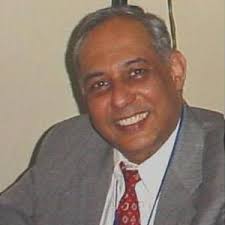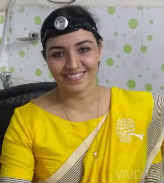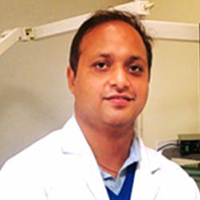Sinus Surgery IN INDIA
Chronic sinus conditions can be debilitating, affecting your breathing, sleep quality, and overall well-being. If you’ve been struggling with recurring sinus infections, nasal blockages, or other sinus-related problems that hinder your daily life, sinus surgery might be the solution you need.
India has become a globally recognized destination for sinus surgery, offering state-of-the-art medical infrastructure, highly skilled surgeons, and affordable costs. Whether you’re a domestic patient or traveling from abroad, this guide will walk you through everything you need to know about sinus surgery in India, ensuring you can make a confident, informed decision.
Introduction
Sinus surgery has emerged as a transformative solution for individuals suffering from chronic sinus conditions that fail to respond to conventional treatments. These conditions, which often manifest as nasal congestion, facial pain, difficulty breathing, and recurring infections, can significantly impact the quality of life. Over the years, India has become a global hub for sinus surgery, thanks to its combination of world-class healthcare facilities, experienced medical professionals, and cost-effective solutions.
This article provides an in-depth overview of sinus surgery in India, covering its necessity, types, benefits, costs, preparation, recovery, and why it stands out as an ideal destination for the procedure. Whether you are a domestic patient or an international visitor, this guide will answer all your questions about sinus surgery and help you make informed decisions
Understanding Sinus Surgery
Sinus surgery is a specialized procedure aimed at addressing blockages or abnormalities in the sinuses. The sinuses are air-filled cavities located in the skull, responsible for producing mucus that moisturizes the nasal passages and protects against pollutants and pathogens. When the sinuses are blocked due to inflammation, infections, or structural issues, it can lead to conditions like chronic sinusitis, nasal polyps, or even severe breathing difficulties.
The primary goal of sinus surgery is to remove these blockages, restore proper airflow, and improve drainage. Unlike traditional treatments that focus on symptom management, sinus surgery provides a long-term solution by addressing the root cause of the problem.
Why is Sinus Surgery Necessary?
Sinus surgery becomes essential when chronic sinus issues persist despite exhaustive medical interventions, such as antibiotics, nasal sprays, and other therapies. Without treatment, sinus blockages can lead to complications, including:
- Chronic Infections: Persistent sinus infections can spread to adjacent areas like the eyes or brain, causing severe health problems.
- Breathing Difficulties: Blocked sinuses can lead to nasal obstruction, making it hard to breathe through the nose.
- Facial Pain and Headaches: Chronic sinus issues often cause persistent discomfort, which can interfere with daily activities.
- Loss of Smell and Taste: Prolonged sinus issues can dull sensory perception, significantly impacting the quality of life.
For individuals experiencing these symptoms regularly, sinus surgery offers a path to recovery and a better quality of life.
Common Causes of Chronic Sinus Problems
Several factors can contribute to chronic sinus problems. Some of the most common causes include:
- Allergies: Allergic reactions to pollen, dust, or pet dander can trigger inflammation in the sinuses.
- Nasal Polyps: These are non-cancerous growths in the nasal passages that can obstruct sinus drainage.
- Structural Abnormalities: Conditions like a deviated nasal septum can lead to chronic sinusitis.
- Infections: Frequent bacterial, viral, or fungal infections can inflame and block the sinuses.
- Environmental Factors: Air pollution, smoking, and exposure to irritants can worsen sinus conditions.
What are the Types of Sinus Surgery?
Modern advancements in medical technology have led to several types of sinus surgery. Each type is tailored to address specific conditions, ensuring patients receive the most appropriate treatment.
- Functional Endoscopic Sinus Surgery (FESS)
FESS is a minimally invasive procedure widely used to treat chronic sinusitis. A small endoscope is inserted into the nostrils, allowing the surgeon to visualize and remove blockages. This procedure is precise, causes minimal tissue damage, and ensures a quicker recovery.
- Balloon Sinuplasty
Ideal for mild to moderate cases, balloon sinuplasty involves inserting a catheter with an inflatable balloon into the sinus openings. Once inflated, the balloon gently widens the passage, improving drainage and relieving symptoms. This procedure is less invasive and often performed on an outpatient basis.
- Image-Guided Sinus Surgery
For complex cases or revision surgeries, image-guided sinus surgery uses advanced imaging technology to navigate intricate sinus structures. This technique enhances precision and reduces the risk of complications, making it a preferred choice for challenging cases.
- Traditional Sinus Surgery
In cases of severe sinus conditions, traditional surgery may be required. This involves making external incisions to access the sinuses, allowing the surgeon to remove large blockages or address structural issues.
Benefits of Sinus Surgery
Sinus surgery offers numerous benefits, making it a highly effective treatment for chronic sinus issues. Patients often report:
- Improved Breathing: Clear sinus pathways enhance airflow, making breathing easier.
- Relief from Chronic Congestion: Persistent nasal blockages are effectively treated.
- Reduced Sinus Infections: Surgery minimizes the risk of recurrent infections.
- Better Sleep: Improved breathing often leads to better sleep quality and reduced snoring.
- Enhanced Quality of Life: The ability to breathe freely and live without chronic pain or discomfort is transformative.
What are the Costs of Sinus Surgery in India?
India is renowned for offering high-quality healthcare at affordable prices. The cost of sinus surgery varies depending on the type of procedure, hospital, and location. Below is an approximate cost breakdown:
| Type of Surgery | Cost in INR | Cost in USD |
| Functional Endoscopic Sinus Surgery (FESS) | ₹80,000 – ₹1,50,000 | $1,000 – $1,800 |
| Balloon Sinuplasty | ₹90,000 – ₹2,00,000 | $1,200 – $2,400 |
| Image-Guided Sinus Surgery | ₹1,50,000 – ₹3,00,000 | $1,800 – $3,600 |
| Traditional Sinus Surgery | ₹50,000 – ₹1,00,000 | $600 – $1,200 |
Factors Influencing Costs
- Hospital Reputation: Renowned hospitals with advanced facilities may charge more.
- Surgeon’s Expertise: Experienced surgeons typically have higher consultation and surgical fees.
- Type of Procedure: Advanced techniques like image-guided surgery are costlier.
Post-Surgery Care: Additional costs may arise for follow-up consultations, medications, or special care needs.
Why Choose India for Sinus Surgery?
India has emerged as a leading destination for sinus surgery due to its advanced healthcare infrastructure, affordability, and skilled medical professionals. Hospitals are equipped with state-of-the-art technology, and surgeons are highly trained in minimally invasive techniques, ensuring high success rates and patient satisfaction.
Why Choose Al Afiya MediTour?
- Comprehensive Medical Assistance: Al Afiya Medi Tour offers end-to-end support for international and domestic patients, ensuring a hassle-free experience from initial consultation to post-surgery care. We handle everything, including appointment scheduling, hospital admissions, and travel arrangements.
- Access to Leading Hospitals and Specialists: Al Afiya Medi Tour partners with some of India’s best hospitals and top ENT specialists renowned for their expertise in sinus surgery. This ensures you receive treatment from highly experienced professionals using the latest medical technologies.
- Affordable Treatment Packages: Cost is often a concern for patients seeking specialized medical care. Al Afiya Medi Tour provides affordable packages without compromising quality, offering savings of up to 60-80% compared to treatments in Western countries.
- Personalized Care Coordination: The team of care coordinators is available 24/7 to guide you through the treatment process, including visa assistance, airport transfers, accommodation, and language interpretation services.
- Advanced Technology and Techniques: With Al Afiya Medi Tour, you can access hospitals equipped with advanced techniques like Functional Endoscopic Sinus Surgery (FESS), balloon sinuplasty, and image-guided sinus surgery, ensuring minimally invasive procedures and quicker recovery.
- Multilingual Support: International patients often face language barriers. Al Afiya Medi Tour provides multilingual support to ensure seamless communication between patients and healthcare providers.
- Focus on Holistic Wellness: Beyond surgery, the company emphasizes holistic wellness, providing recommendations for recovery therapies and follow-up care that ensure long-term health benefits.
Exceptional Patient Testimonials: Al Afiya Medi Tour has garnered glowing reviews from patients worldwide who praise their professionalism, personalized care, and effective treatments.
What are the Pre-Surgery Preparations of Sinus Surgery?
Preparation is key to a successful sinus surgery. Patients are advised to:
- Undergo Diagnostic Tests: Imaging tests like CT scans or MRIs help surgeons assess the extent of sinus blockages.
- Avoid Certain Medications: Blood thinners and non-essential drugs should be discontinued as advised.
- Maintain General Health: A healthy diet and adequate hydration support faster recovery.
What to Expect During Sinus Surgery?
The procedure begins with administering anesthesia to ensure comfort. The surgeon then uses specialized instruments to remove blockages, correct structural issues, or widen sinus passages. Depending on the complexity, the procedure can take 1-3 hours. Advanced methods like FESS and image-guided surgery are minimally invasive, reducing recovery time.
Post-Surgery Care and Recovery
Recovery from sinus surgery requires proper care. Here are some guidelines for a smooth recovery:
- Use Nasal Sprays: Saline sprays keep the nasal passages moist and prevent scabbing.
- Avoid Strenuous Activities: Rest and avoid heavy lifting for at least two weeks.
- Stay Hydrated: Drinking plenty of water helps in faster healing.
Follow-Up Appointments: Regular check-ups ensure the surgery’s success and address any concerns.
Risks and Complications
While sinus surgery is generally safe, like any procedure, it carries potential risks, including:
- Minor bleeding
- Infection
- Scarring
- Temporary numbness in the face
Top Sinus Surgery Doctors in India
The right doctor to consult for a Sinus Surgery case.
Dr. Atul Kumar Mittal
Year of experience: 21 Years of Experience
Dr. Sanjay Sachdeva
Year of experience: 29 years of experience
Leading Hospitals for Sinus Surgery in India
Looking For The Best Doctor & Hospital?
Fill up the form and get assured assitance within 24 hrs!
FAQs
- What is sinus surgery?
Sinus surgery is a medical procedure aimed at treating chronic sinus issues, including sinus infections, nasal polyps, and structural abnormalities. It involves removing blockages, widening sinus passages, and restoring proper drainage to improve breathing and overall health.
- Who needs sinus surgery?
Sinus surgery is recommended for patients who experience:
- Chronic sinusitis that doesn’t respond to medications.
- Nasal polyps causing severe obstruction.
- Recurrent sinus infections.
- Structural abnormalities like a deviated septum.
- What are the types of sinus surgery available?
The most common types include:
- Functional Endoscopic Sinus Surgery (FESS): Minimally invasive procedure using an endoscope.
- Balloon Sinuplasty: A non-invasive method using a balloon catheter.
- Image-Guided Sinus Surgery: Advanced technology for precision in complex cases.
- Traditional Sinus Surgery: Used for severe conditions requiring external access.
- What are the best hospitals for sinus surgery in India?
Some of the leading hospitals include:
- Apollo Hospitals (Delhi, Chennai, Bangalore): Known for advanced ENT care and state-of-the-art facilities.
- Fortis Healthcare (Delhi, Mumbai, Bangalore): Offers minimally invasive sinus surgery and highly experienced ENT specialists.
- Max Super Specialty Hospital (Delhi, Gurgaon): Equipped with modern technology for image-guided sinus surgeries.
- Manipal Hospitals (Bangalore, Jaipur): Renowned for holistic ENT care.
- AIIMS, Delhi: Offers world-class treatments at economical rates.
- Who are the best doctors for sinus surgery in India?
Top ENT surgeons include:
- Dr. K.K. Handa (Medanta – The Medicity, Gurgaon): An expert in FESS and minimally invasive ENT procedures.
- Dr. Ameet Kishore (Apollo Hospitals, Delhi): Specializes in advanced sinus surgeries.
- Dr. Ravi Ramalingam (Chennai): Known for expertise in balloon sinuplasty and endoscopic procedures.
- Dr. Arvind Krishnamurthy (Cancer Institute, Chennai): An expert in image-guided sinus surgeries.
- Dr. Mohan Kameswaran (Chennai): Renowned for ENT and head-neck surgeries.
- How much does sinus surgery cost in India?
Sinus surgery costs vary by type:
- FESS: ₹80,000 – ₹1,50,000
- Balloon Sinuplasty: ₹90,000 – ₹2,00,000
- Image-Guided Surgery: ₹1,50,000 – ₹3,00,000
- Traditional Surgery: ₹50,000 – ₹1,00,000
- Is sinus surgery safe?
Yes, sinus surgery is generally safe when performed by experienced surgeons using advanced techniques. Risks are minimal and include minor bleeding or infection, which are easily manageable.
- How long is the recovery period?
The recovery period typically lasts 1-2 weeks for minimally invasive procedures like FESS or balloon sinuplasty. Patients undergoing traditional surgery may require 3-4 weeks to fully recover.
- Do I need to stay in the hospital after sinus surgery?
Most sinus surgeries, especially minimally invasive ones, are performed on an outpatient basis, meaning you can go home the same day. Complex surgeries may require a 1-2 day hospital stay.
- Can sinus surgery improve sleep quality?
Yes, by addressing nasal blockages and improving airflow, sinus surgery often enhances sleep quality and reduces snoring or sleep apnea symptoms.
- Why should I choose India for sinus surgery?
India offers a unique combination of high-quality medical care, experienced surgeons, cutting-edge technology, and affordable treatment costs, making it an excellent choice for sinus surgery.
Get FREE Evaluation
Treatment plan and quote within within 24 hrs!
Let us help you
Get your personalized Estimate Now
Top Doctors & Surgeons in India
Best Hospitals in India
Best Treatments in India
Indian Medical Visa From
Copyright © 2025 Al Afiya Medi Tour | All Rights Reserved.































